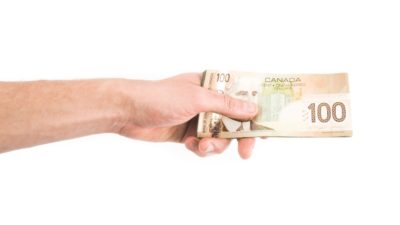This year’s been a challenging one for many Canadians. The coronavirus pandemic’s crippled businesses and that’s resulted in employers slashing jobs. For some businesses, they’ve shut down entirely. The Canadian government’s doing what it can to help in the meantime by offering a range of benefits for the unemployed, students, and businesses.
The most notable is the Canada Emergency Response Benefit (CERB) which pays Canadians who are out of work due to COVID-19 $2,000/month.
Tax deadline pushed back again
The Canada Revenue Agency (CRA) also pushed back the tax payment deadline earlier this year to September 1 to give taxpayers who owe taxes a bit more breathing room. And in July, the CRA announced that it would again be pushing the tax deadline back — this time to September 30. The deadline is just days before the current end date for the CERB: October 3.
Why next year’s taxes could be a real problem
While the tax extension will help give cash-strapped Canadians a bit more time to pay their taxes, it does nothing to combat a much bigger problem next year. Many Canadians will have big bills to pay, and the reason for that is CERB.
Canadians who receive CERB and aren’t eligible for the payments will have to pay them back. The danger is for those who don’t yet know that they’ll need to pay the benefits back.
With the $2,000/month benefit being extended to cover six months, someone could potentially receive $12,000 that they aren’t eligible for, which could be a big bill to pay come tax time (or sooner). It could make for an already difficult situation for taxpayers that much worse.
And that’s not all. Since CERB is a taxable benefit that’s paid out in gross with no deductions, Canadians will likely have to pay some taxes on it next year, unless they’re in a low enough tax bracket and their tax credits can wipe out any amounts owing.
Now’s the time to save and put money aside into a TFSA
A good way to protect yourself in the event you do have a big tax bill is by putting aside whatever money you can into a Tax-Free Savings Account (TFSA). Even if you’re not sure where to invest the money into, it’s still a safe place to store your money and out of your chequing account so that you avoid spending it.
And if you do want to invest the money, there are plenty of safe options out there. The iShares Canadian Select Dividend Index ETF (TSX:XDV) is an exchange-traded fund (ETF) that’s home to many of the top stocks you can find on the TSX.
Its largest holdings include Canadian Imperial Bank of Commerce, Canadian Tire, and Royal Bank of Canada. Nearly 60% of the fund is weighted toward financial services, 12% is in utility stocks and 11% is in communication services.
As the name suggests, you can also generate some recurring income from owning the ETF as it currently yields 5.77%. On a $25,000 investment, that would earn you $1,442.50 in the way of dividend income.
The ETF’s down 17% so far in 2020 but over the long term, it’s likely to rise in value and can be a safe investment to put into your TFSA. And by building up your portfolio and your savings, you’ll be in a much stronger financial position.
 Claim Membership Credit
Claim Membership Credit






